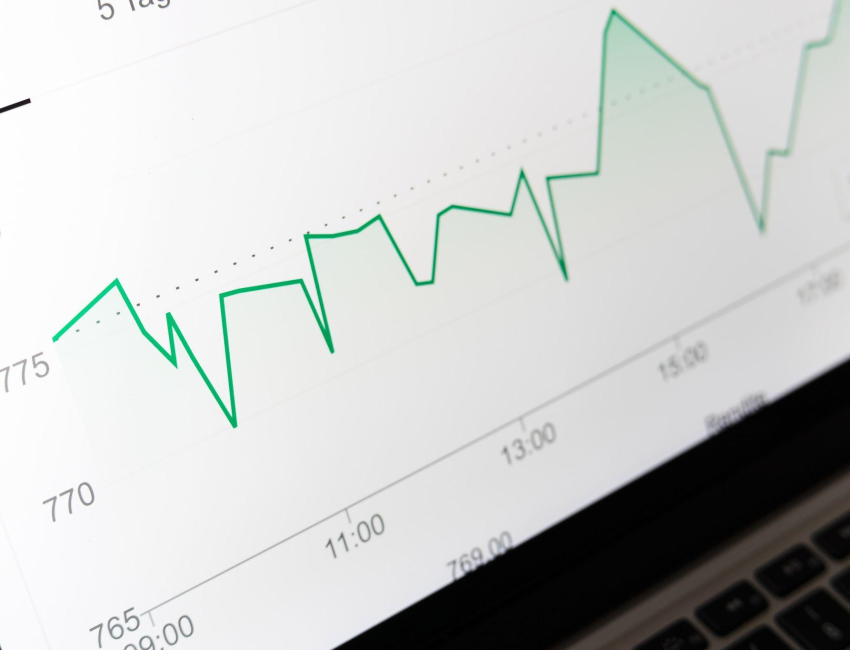In this increasingly digital world, businesses are being told more and more to watch the data. You can collect data from your customers based on their purchases or interactions with your website. You can collect data on your own workflow and processes. This data can be used to help grow your business.
But what does data analytics entail, and how can you use it to grow your business? Let’s break down everything you need to know in today’s blog.
What Is Data Analytics?
Every day, 2.5 quintillion bytes of data are collected from various websites and apps. Much of this data is collected by businesses to help inform them so they can continue to grow. Businesses collect data typically from two different sources: their consumers and the process of their own business operations. This data is then analyzed to help inform business decisions.
Data collected from customers is done by tracking buyer preferences on apps, activity on various website pages, and even by asking customers to provide data voluntarily through a survey. In-house data is easily tracked through a workflow platform, showing the most efficient aspects of your workflow as well as the areas that require more work.
How Can Data Analytics Help Your Business Grow?
Whether it’s in-house data or consumer data, data collection and analysis helps you understand what your business is doing well and what isn’t working. From there, business executives can make decisions to help grow your business. Some of the ways data analysis helps your business include:
Theft Protection
The more your business grows, the more risk it could face. Data analytics can help you catch customer or employee theft more quickly. By keeping an eye on the data, you’ll be able to notice discrepancies in your inventory or budget. The analytics should be able to lead you to the source so you can eliminate the issue. Data analytics will also help you identify threats — whether they be physical or cybersecurity threats.
Personalized Customer User Experience
The data you collect from customers should help you get a sense of their preferences. It will show you the purchases they’ve made in the past, as well as landing pages for products or services that they may have lingered on. This will help you to personalize their experience, offering them recommendations based on their interests or sending personalized promotional emails.
Clearer Priorities
Part of growing your business is knowing where to put the money. What is a good investment and what is a waste of time and resources? Data analytics can help you clarify the process.
If certain aspects of your products or services are going unnoticed, you may need to change your marketing strategy. You may even need to cut it loose. On the other hand, if another aspect of your business is going well, you may choose to invest in that aspect further. These decisions, based on data, will help your business to run as effectively as possible.
Proof For Shareholders
If your business is doing well, it will show in your data. Data analytics gives you clear and empirical proof that you can show to shareholders and investors. Your data can answer the question of where their money is going, and it can give you justification to ask for continued support.
Developing a Data Analytics Strategy
Like anything else, doing data analytics well requires a strong strategy. There are a number of things you need to keep in mind while collecting and analyzing both customer and in-house data, such as:
Staying Compliant with Data Privacy Regulations
Recent regulations like Europe’s General Data Protection Regulation (GDPR) or California’s Online Privacy Protection Act (CalOPPA) have made it important to stay compliant in your data collection and analysis. Even if your business is not located in California or Europe, as long as any of your customers might be, you need to adhere to these regulations. There may be other regional regulations to adhere to, as well.
These data privacy laws are designed to protect the privacy of the consumer while data is being collected. Data should never be collected without the customer’s knowledge and consent or sold to a third party without their knowledge and consent. Consumers should have the right to opt in or out of cookies on your website. A clear privacy policy that lays out how the data is used and how you will ask for consent is a must.
Identify Key Performance Indicators (KPI)
Once the data is collected, you have to be able to store, organize, and analyze that data. It’s important to identify key performance indicators (KPI) so that analyzing data doesn’t feel like searching for a needle in a haystack. What kind of information do you want to glean from your data analysis, and what do the answers mean for your business?
Combine with Market Research
While analyzing your own data, you should also continue to keep an eye on current market trends. This will offer context to your data analytics. What are the standards you should reach for — or push to surpass? Take a look at your competitors, as well as industry standards to better inform your data analytics.


